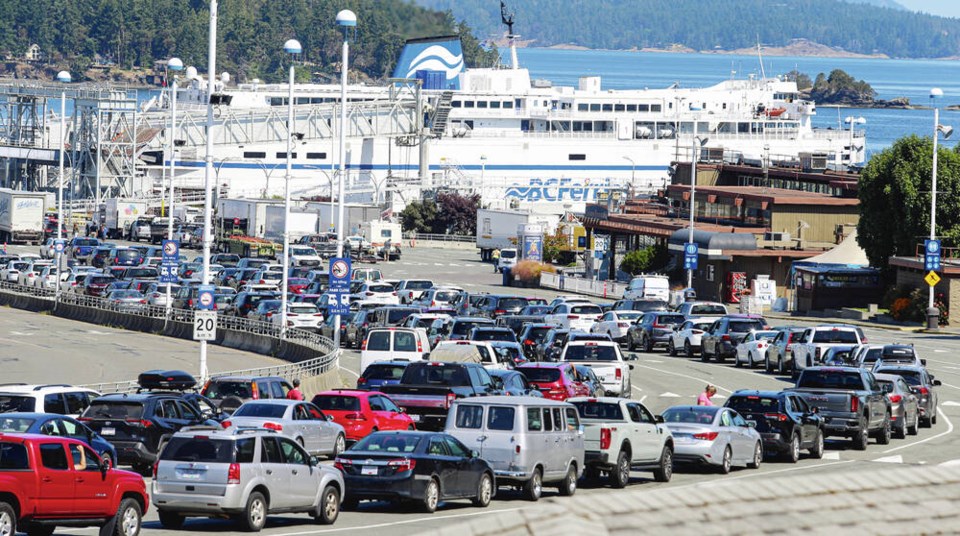The B.C. Ferry and Marine Workers Union is hopeful that a beefed-up role for the B.C. Ferry Authority board will lead to improved service for passengers and a better working environment for employees.
Changes coming to legislation governing two boards — the B.C. Ferries board and the B.C. Ferry Authority board — will likely align better with the original intent of the government when it created a company in 2003 to run the ferry service, says union president Eric McNeely.
He sees this as addressing unanticipated shortcomings with the original legislation.
“With the tabled changes the authority will be able to review and address the frequent sailing waits, cost of travel, fuel surcharges and backlogged reservation system, all with the interest of the public and ferry users as the guiding principles,” the union said in a statement.
Some union members have fond memories of being part of the ferry system when it was a Crown corporation. McNeely said it is unlikely it will become a Crown agency again because of the amount of debt it carries.
Planned legislative changes will remove much of the power now with B.C. Ferries and hand it over to the authority board.
The authority board will be allowed to pass resolutions declaring any aspect of the ferry service in the public interest, and then issue binding directions to B.C. Ferries.
McNeely sees the authority board as focusing on the perspective of the public.
The union is hoping the authority board will tackle issues such as the percentage of space allowed for reservations on sailings, ferry waits, executive compensation and staff training.
If the public is happy, if multi-sailing waits are reduced, then it is likely the work environment will be better, said McNeely.
The union would like the authority to address executive compensation and see money redirected to training, staff retention and infrastructure.
The province’s plans for B.C. Ferries follow a tumultuous time. When the pandemic was declared in spring 2020, B.C. Ferries drastically reduced the number of its sailings and sent more than 1,000 employees layoff notices. Most of the notices were rescinded a few weeks later.
In recent months, B.C. Ferries has cancelled many sailings because of staffing shortages.
“The uncertainty, in the union’s opinion, is directly related to how resources are used within BCFS [B.C. Ferry Services, which operates as B.C. Ferries] and the ability to plan long-term for human resources needs,” the union said.
McNeely is calling for more robust training and education systems by B.C. Ferries and other marine employers on B.C.’s coast.
“Recruitment has replaced training and retention.”
Employers are competing for the same trained people who have earned specific certifications to serve on vessels without having developed future engineers and future captains, he said.
Looking to the future of the B.C. Ferries system, McNeely said: “I think the government has listened to some of the concerns we’ve raised and likely concerns the public has raised around the ferry service and I think they are trying to take steps to address some of those concerns.
“We’re optimistic that the steps they’re taking with the changes to the Coastal Ferry Act bear fruit and make for a better service and therefore a better work environment for our members.”



